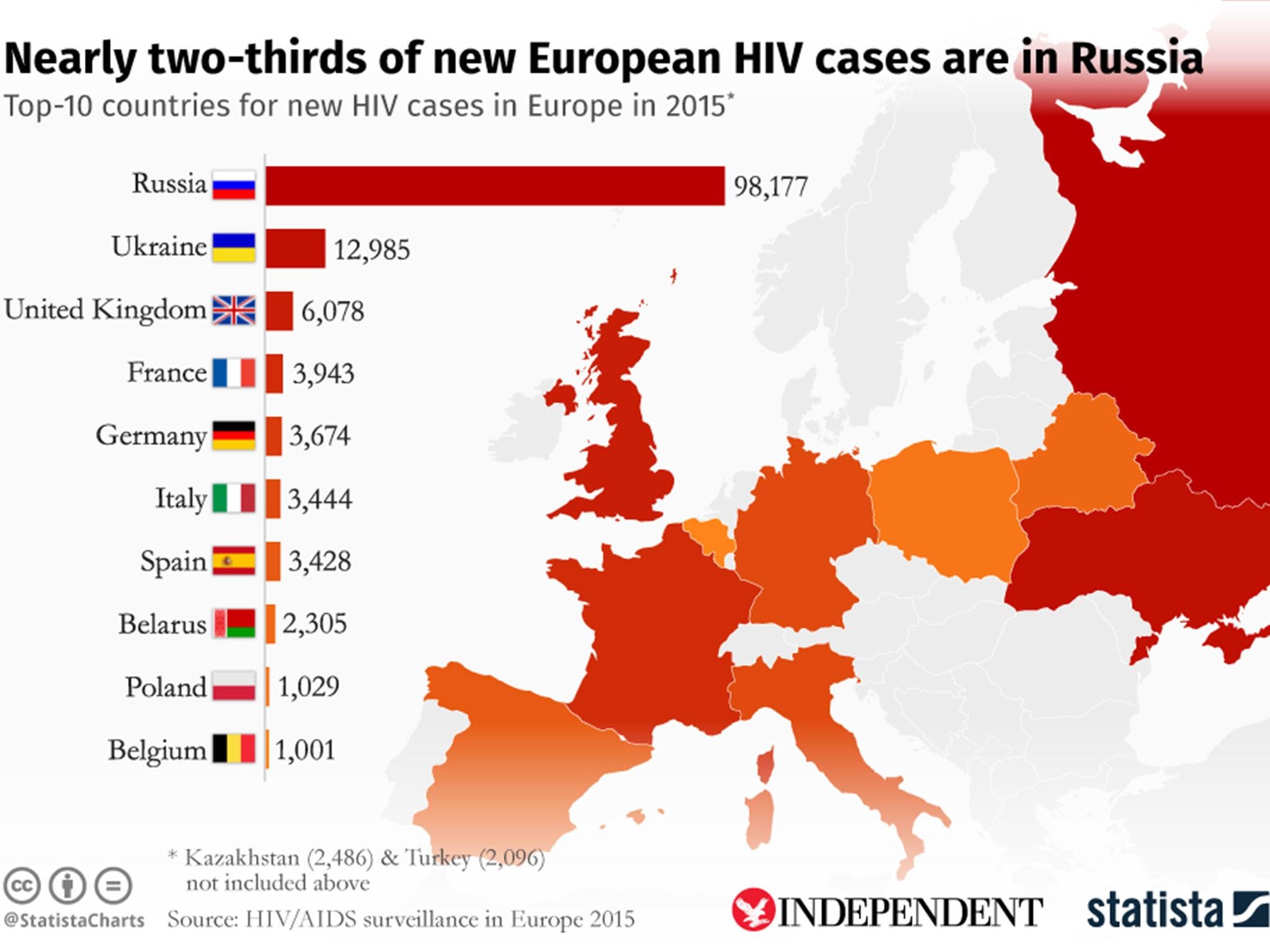HIV ‘may soon be wiped out in London’ after dramatic drop in new infections
'We can finally beat this thing,' says lead clinician at capital's largest sexual health clinic

Your support helps us to tell the story
From reproductive rights to climate change to Big Tech, The Independent is on the ground when the story is developing. Whether it's investigating the financials of Elon Musk's pro-Trump PAC or producing our latest documentary, 'The A Word', which shines a light on the American women fighting for reproductive rights, we know how important it is to parse out the facts from the messaging.
At such a critical moment in US history, we need reporters on the ground. Your donation allows us to keep sending journalists to speak to both sides of the story.
The Independent is trusted by Americans across the entire political spectrum. And unlike many other quality news outlets, we choose not to lock Americans out of our reporting and analysis with paywalls. We believe quality journalism should be available to everyone, paid for by those who can afford it.
Your support makes all the difference.Doctors in London have said they could be on the way to wiping out HIV in the capital.
The number of new HIV infections diagnosed at London’s biggest sexual health clinic nearly halved last year, with similar reductions seen at other HIV clinics.
This dramatic drop occurred following the adoption of a new early-intervention treatment programme pioneered in San Francisco, reported the Evening Standard.
HIV cases in the Californian city have fallen significantly in the last decade, dropping more steeply since 2012, in what has been called a healthcare “miracle”.
Dr Alan McOwan, lead clinician at 56 Dean Street, told the newspaper new cases of HIV had either increased or remained the same for the two decades he had been working in sexual health.
“This [drop] is what I have been waiting 20 years to see,” he said.
“Everyone is so excited. It makes people feel it’s achievable and we can finally beat this thing. It’s London’s time to grab its chance.”

The new programme requires patients to receive antiretroviral medicine a week after they are diagnosed as HIV-positive, which doctors aim to do within months of infection.
This limits the spread of the virus by making it less likely that those who have contracted it will pass it on to their sexual partners.
Last year, there were 42 per cent fewer new cases of HIV recorded at 56 Dean Street, the largest sexual health clinic in Europe that diagnoses one in nine of all HIV cases in the UK, with the number of new infections falling to 393 from 679 in 2015.
The drop in infections could also be attributable to a rise in the number of people at risk of contracting HIV buying medicine online which reduces the risk of catching the virus.
Pre-exposure prophylaxis (PrEP) drugs have been approved for use in the UK but aren’t yet available on the NHS, so people are buying them from online pharmacies in India and Swaziland, reported the New Scientist.
Nearly 600 people with HIV died last year, according to Public Health England, which has re-classified HIV from a fatal infection into a “chronic manageable condition” after advances in treatment.
Dr Anthony Fauci, director of the US National Institute of Allergy and Infectious Diseases, told the New York Times the ‘San Francisco Model’ could end the world’s HIV epidemic.
“I love the San Francisco model,” he said. “If it keeps doing what it is doing, I have a strong feeling that they will be successful at ending the epidemic as we know it. Not every last case — we’ll never get there — but the overall epidemic.”
HIV infections can be spotted earlier than previously with blood tests and laboratory techniques known as 'Recent Infection Testing Algorithm', or RITA.
Join our commenting forum
Join thought-provoking conversations, follow other Independent readers and see their replies
Comments